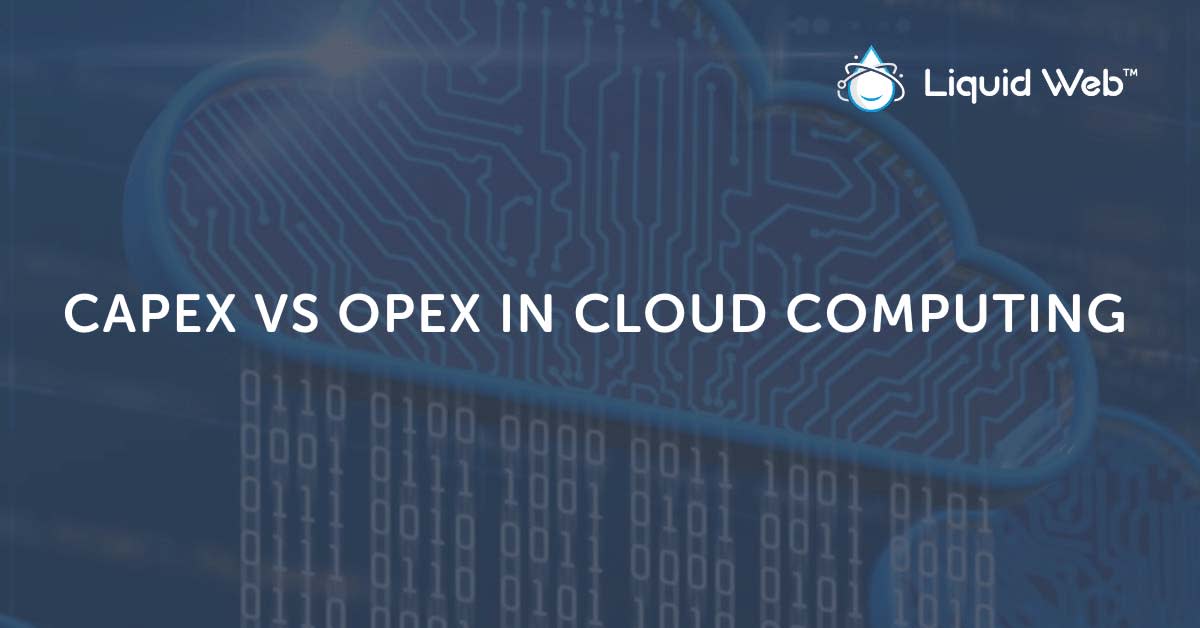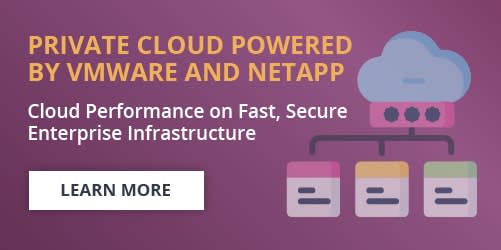
Trying to decide between using CapEx funding for data centers or colocation vs using OpEx funding for moving your infrastructure to the modern cloud?
Most companies nowadays will need some sort of presence online. Options used to be extremely limited and costly, and in fact, until the last couple of decades, the only option was the build your own data center or colocation of your server in an external data center.
In the 21st century, cloud computing has become a viable option for all businesses. Cloud technology is now highly adopted by businesses of all types and sizes due to its performance, security, maturity, and surprising affordability.
What is CapEx and OpEx Funding?
Businesses have two types of expenses around infrastructure or the cloud: CapEx vs OpEx.
CapEx funding (capital expenditure) means spending funds on real estate or even infrastructure purchases such as building a data center. CapEx funding by its nature requires upfront capital for these large purchases, which limits many organizations from building data centers. Capital expenditures are accounted for as payments for goods and services and recorded on the balance sheet. Capital expenditures incur depreciation as assets age.
OpEx funding (operational expenditure) is the cost incurred while doing business. Colocation and cloud computing fall into this category. This means that cloud computing and OpEx funding are intertwined as compared vs CapEx funding. OpEx costs are recorded on the income statement.
The OpEx-Funded Cloud
Cloud computing is the most agile form of computing possible. Here are the benefits of using the cloud:
- Elastic: Resources are dynamically allocated and can be scaled up or down to meet demand.
- Burstable Bandwidth: Spikes in demand during a flash sale can be accounted for and handled adequately without server resource depletion or website downtime.
- Scalable: Resources can scale with your company’s growth.
- Pay-Per-Use: Only pay for the resources actually used. This is great for limited IT budgets.
- High-Performance Hardware: Cloud service providers (CSPs) keep the hardware up-to-date, so you can avoid purchasing costly hardware upgrades and the supply chain issues of 2022.
- Room for Expansion: Those that use only a limited amount of resources from an owned data center will see cost reduction over time from an OpEx cloud spend.
Liquid Web’s Most Helpful Humans in Hosting® can help you determine what kind of cloud option is best for you.
The Benefits of CapEx vs OpEx for Cloud Computing
The OpEx-funded cloud allows a company to be agile, elastic, and respond to periods of high demand and low demand dynamically.
| CapEx Model with a Data Center | CapEx Model with Colocation | OpEx Model with Cloud Computing |
|---|---|---|
| Not Agile | Own or Lease the Servers | Agile |
| Not Elastic | Servers Depreciate Over Time | Elastic |
| Easy to Over/Under Provision | Some Elasticity | Scales on Demand |
| Requires Dedicated IT Staffing | Requires Dedicated IT Staffing | Cloud Provider Handles IT Hardware Management |
| Big Upfront Investment | Can Be Costly if Purchasing Server Space and Hardware | No Upfront Investment |
Pros and Cons of CapEx vs OpEx for Infrastucture and Cloud Computing
1. Build Your Own Data Center
You could build your own data center or buy an existing data center from someone. Here are the pros and cons:
Pros:
- Full Customization: Infinite ability to customize the hardware to your exact specifications.
- Investment in the Company: The data center is an investment in the company but loses value over time due to depreciation.
Cons:
- Upfront Investment: Requires a large upfront cost making it cost prohibitive to most businesses.
- Requires Dedicated IT Professionals: Requires companies to hire trained IT professionals and keep them on the payroll with availability 24/7/365.
- Overprovisioning/Under Provisioning: You will end up having more (or less) hardware than you need to accomplish business goals.
- Supply Chain Shortages: With the semiconductor shortages of 2021 and 2022, there is a shortage of microchips for computer servers which could increase your costs or leave you with hardware compatibility issues.
2. Colocation
Colocation is renting server space and a server from a provider. You can lease the server with OpEx funds or purchase the server with CapEX funds. Here are the pros and cons of colocation:
Pros:
- Own the Hardware: You own the servers (if you provided your own server) and are not tied to a particular provider.
- Server Stack Customization: Ability to select your own operating system and server tech stack of choice to run on the servers.
- More Flexibility than a Data Center: While not as flexible as the cloud, it is more flexible than trying to build your own data center.
Cons:
- Less Flexibility than Cloud: Colocation requires capital expenditure on servers with the chance to over or under provisioning hardware.
- Requires Dedicated IT Professionals: Requires companies to hire trained IT professionals and keep them on the payroll with availability 24/7/365.
- Hardware Replacement: Servers have to be replaced about every five years to avoid hardware failure and keep workloads performing optimally.
- Supply Chain Shortages: With the semiconductor shortages of 2021 and 2022, there is a shortage of microchips for computer servers which could increase your costs or leave you with hardware compatibility issues.
3. Cloud Computing
Cloud Computing can increase organizational agility and competitiveness. Here are the pros and cons of the OpEx cloud computing vs CapEx-funded infrastructure:
Pros:
- Full Management: Cloud providers handle the infrastructure and operating system management, leaving your teams with the sole responsibility of focusing on new features and core business objectives.
- Better Scalability: Much easier to scale workloads up or down based on the needs of the business at the moment.
- No Capital Expenditure Required: Costs come directly out of monthly operating expenses.
- Better Agility: A much more agile IT model where demand and supply meet.
Cons:
- Less Customization: You don’t get to choose your exact server specifications.

OpEx-Funded Private Cloud Use Cases
The simple answer is that an OpEx funded private cloud is good for virtually anyone. Here are three uses cases for private cloud using OpEx:
- Emerging Small Businesses: Typically have small amounts of capital and could not possibly afford to purchase modern servers or buildings for a data center.
- Agile Businesses: Growing or changing rapidly and can take advantage of the elasticity of cloud computing.
- Risk-Averse Businesses: Data centers require months of prior planning and take time to build and staff completely. In challenging economic times, CapEx funded data center projects do not make sense.
Moving to OpEx Infrastructure
When comparing CapEx vs OpEx for cloud computing, OpEx-funded private cloud is the best option for most companies, especially during these turbulent times. It can save your company money in the long run by not having to acquire expensive servers and other IT equipment or staff. Also, it can save money by not having to acquire land in order to build your own data center.
The private cloud is an excellent location to host your company’s IT assets, and a managed private cloud is a great option to consider when choosing your OpEx-funded private cloud expenditure.
Choose Liquid Web for Private Cloud
Liquid Web’s VMware Private Cloud is a good option to consider when considering a highly performant and secure cloud. VMware is a bare metal hypervisor that is installed to a server platform and then the platform is provisioned to the specifications desired.
Contact us today to talk to a Solutions expert and find out more about private cloud.
[ad_2]
Source link







